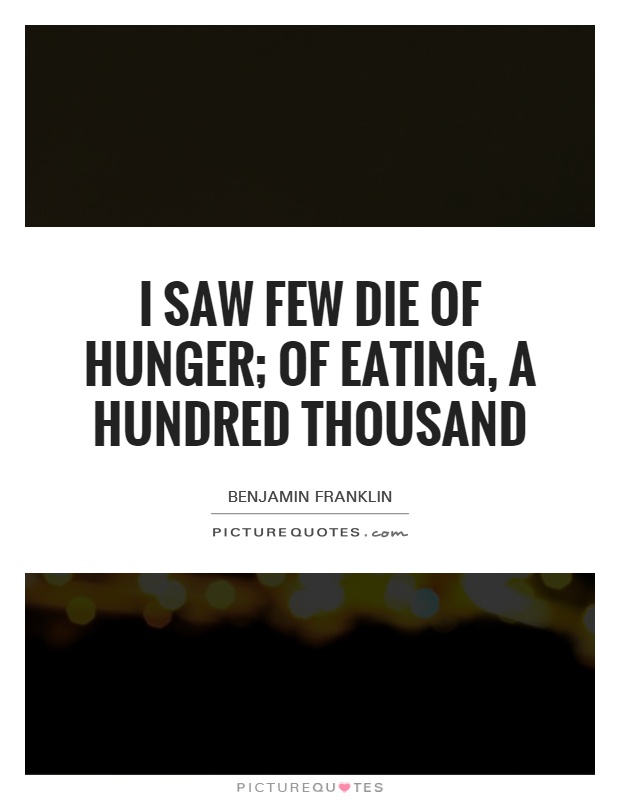I saw few die of hunger; of eating, a hundred thousand

I saw few die of hunger; of eating, a hundred thousand
Benjamin Franklin, one of the founding fathers of the United States, was a man of many talents and accomplishments. He was a renowned inventor, author, diplomat, and statesman. However, one of his lesser-known contributions was his work in the field of public health and nutrition.In the 18th century, when Franklin was alive, hunger and malnutrition were widespread problems in many parts of the world. Franklin himself witnessed the devastating effects of hunger and starvation during his travels and time spent in impoverished communities. He saw firsthand the toll that hunger took on individuals and communities, leading to illness, suffering, and death.
Despite the prevalence of hunger, Franklin observed that the issue was not always due to a lack of food. In his famous quote, "I saw few die of hunger; of eating, a hundred thousand," Franklin highlighted the paradoxical nature of the problem. While some people were indeed dying from lack of food, many others were suffering from the consequences of overeating and poor dietary choices.
Franklin recognized that the key to addressing the issue of hunger and malnutrition was not simply to provide more food, but to educate people about the importance of healthy eating habits and moderation. He believed that by promoting a balanced diet and encouraging people to make better food choices, the prevalence of hunger and its associated health problems could be reduced.












 Friendship Quotes
Friendship Quotes Love Quotes
Love Quotes Life Quotes
Life Quotes Funny Quotes
Funny Quotes Motivational Quotes
Motivational Quotes Inspirational Quotes
Inspirational Quotes